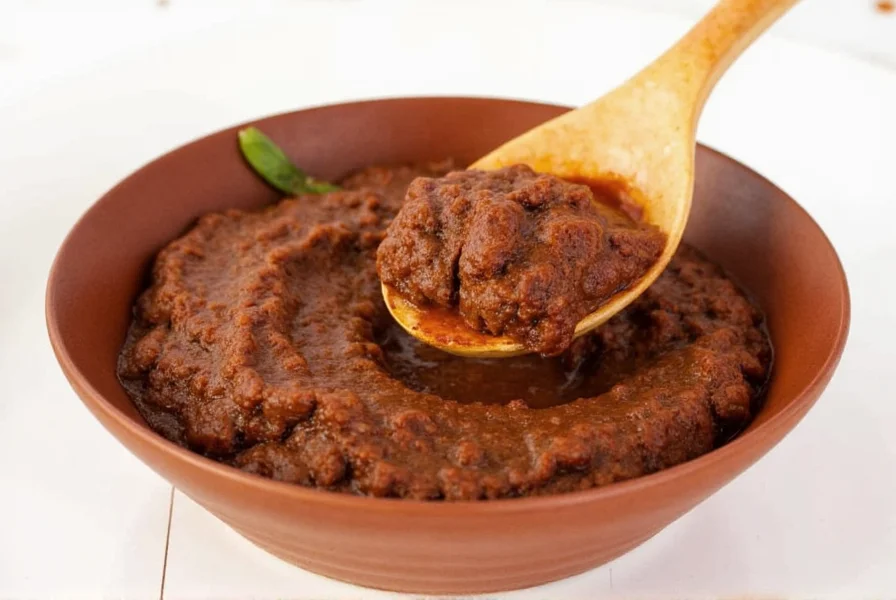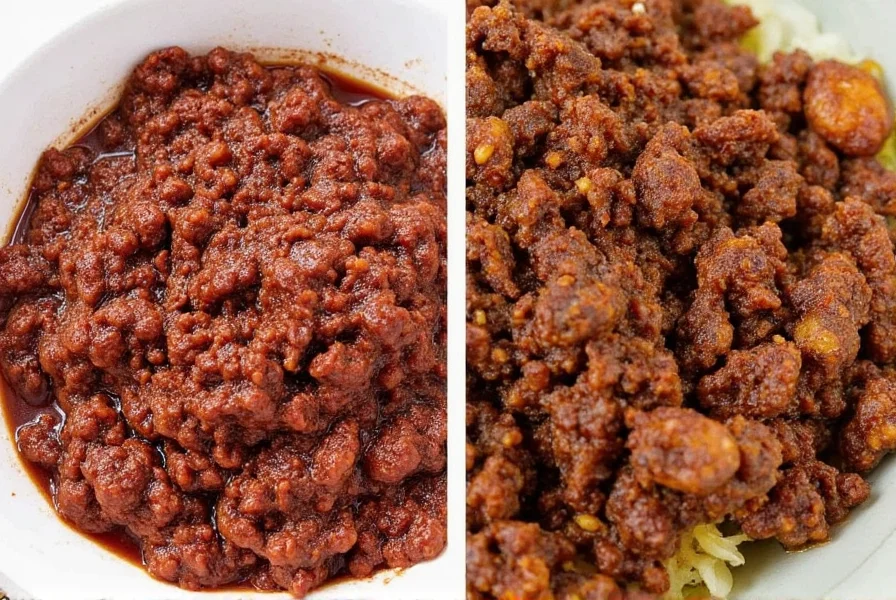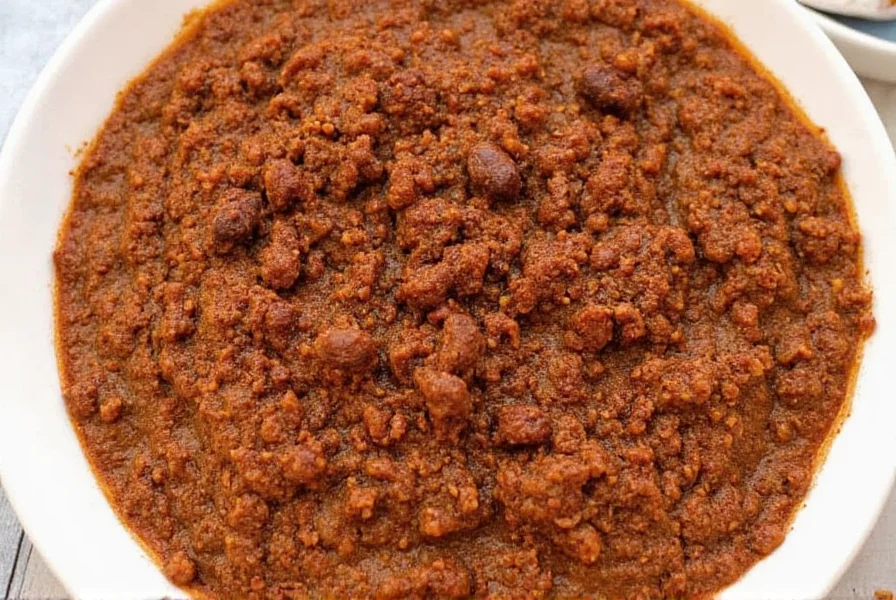Mole Colorado and Mole Coloradito are often confused due to their similar names, but they have distinct differences in ingredients, flavor, and traditional uses. This guide breaks down exactly how they differ, so you can choose the right mole for your dishes.
Mole Colorado vs. Mole Coloradito: Key Differences
| Mole Colorado | Mole Coloradito |
|---|---|
| Literally means "red mole." Typically features a reddish hue due to the use of red chilies like ancho or guajillo. Richer, thicker consistency, often includes chocolate or fruit. Commonly found across central Mexico. | A smaller, more specific variation of mole colorado. Often lighter in texture and slightly less sweet, with regional variations affecting ingredients. More rustic, simpler profile — ideal for layering flavor without overpowering other ingredients. Traditionally associated with Oaxaca and surrounding areas; often used in local street foods and home dishes. |
Flavor Profiles Compared
- Mole Colorado: Deep, smoky, and slightly sweet. Notes of dried fruit (raisins, prunes), cinnamon, clove, and often bittersweet chocolate.
- Mole Coloradito: Earthy, aromatic, with subtle heat. Uses fewer sweet elements and emphasizes nuttiness (almonds, sesame) and mild chili warmth.

How to Use Mole Coloradito in Your Cooking
- Tamales: Mix a spoonful into masa dough for a rich, spiced kick.
- Chicken Enchiladas: Toss shredded chicken with mole coloradito and bake with cheese for a soul-warming dish.
- Vegetable Stir-Fry: Add a dollop to roasted carrots or cauliflower for an umami-rich boost.
- Marinades: Blend with olive oil and lime juice to create a deeply spiced marinade for grilled meats or tofu.
- Spiced Gravy: For Thanksgiving or holiday dinners, substitute traditional gravy with a mole coloradito base.
Buying Guide for Authentic Mole Coloradito Pastes and Powders
| Product | Description | Advantages | Use Case | Best For |
|---|---|---|---|---|
| MexGrocer Mole Coloradito Paste | Ready-to-use paste made with roasted almonds, sesame seeds, and sun-dried tomatoes. | Convenient, no grinding or simmering needed. | Ideal for quick enchiladas, tacos, or rice dishes. | Busy home cooks looking for convenience without sacrificing flavor. |
| Casa de Fruta Mole Coloradito Mix | Dry mix requiring water or broth to rehydrate into sauce. | Long shelf life; retains authentic taste when prepared correctly. | Great for making larger batches for gatherings or meal prep. | Enthusiasts who enjoy hands-on preparation. |
| Oaxacan Roots Artisan Mole Coloradito | Handmade by local artisans using traditional methods. | Authentic regional flavor; supports small businesses. | Suitable for special occasions or gifting. | Food lovers who value cultural heritage and quality ingredients. |

Frequently Asked Questions About Mole Colorado vs. Coloradito
Conclusion: Master Mole Coloradito for Authentic Mexican Cooking
Mole Coloradito offers a uniquely nuanced flavor profile that elevates traditional Mexican dishes without overwhelming other ingredients. Its earthy nuttiness and balanced heat make it perfect for everyday cooking, from enchiladas to roasted vegetables.
When selecting mole products, prioritize those emphasizing Oaxacan heritage and authentic ingredients. Whether you're a home cook or professional chef, understanding the distinction between mole colorado and coloradito will help you choose the right sauce for every dish — bringing true authenticity to your kitchen.











 浙公网安备
33010002000092号
浙公网安备
33010002000092号 浙B2-20120091-4
浙B2-20120091-4